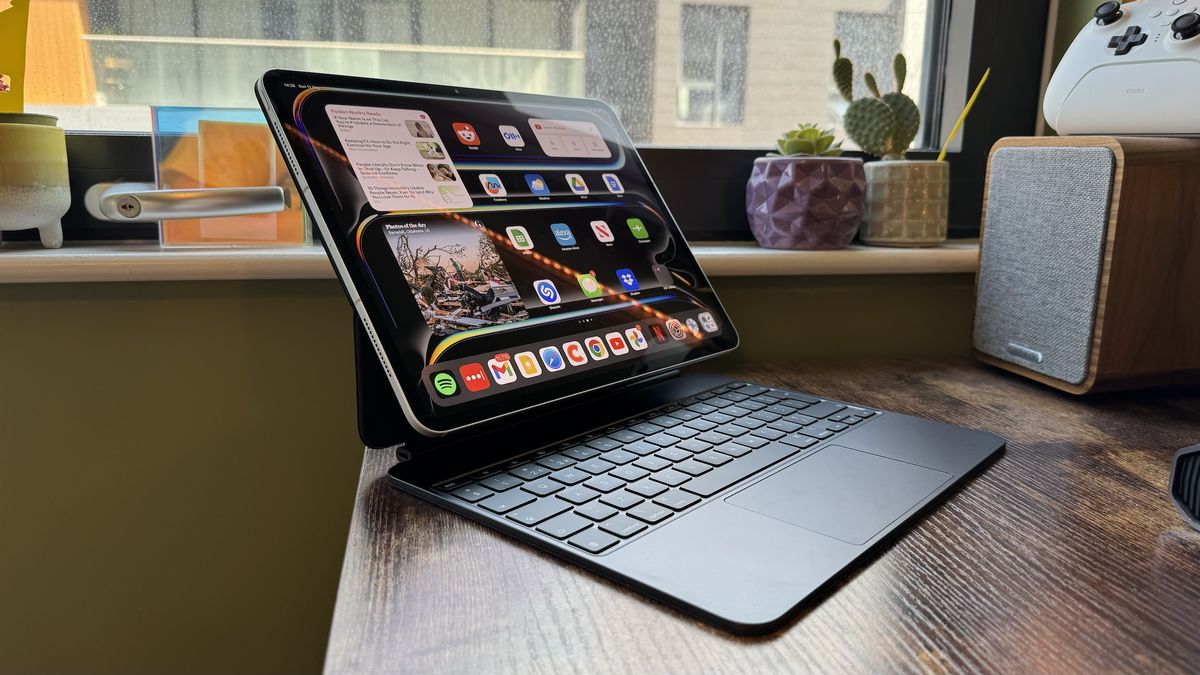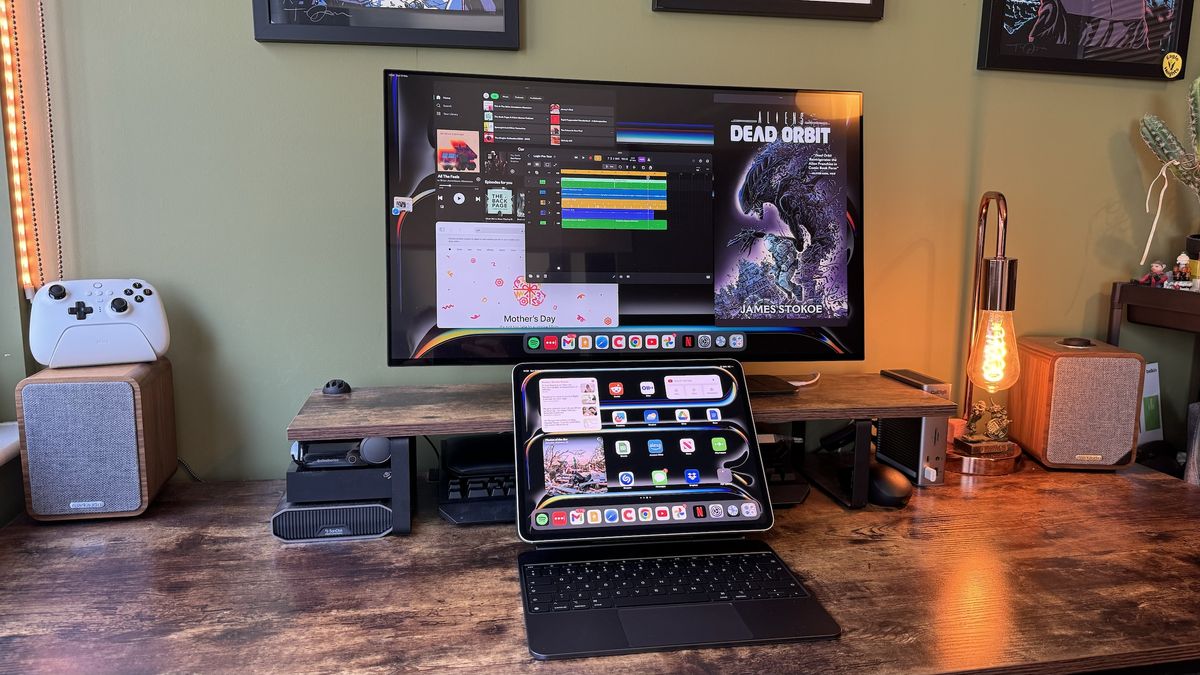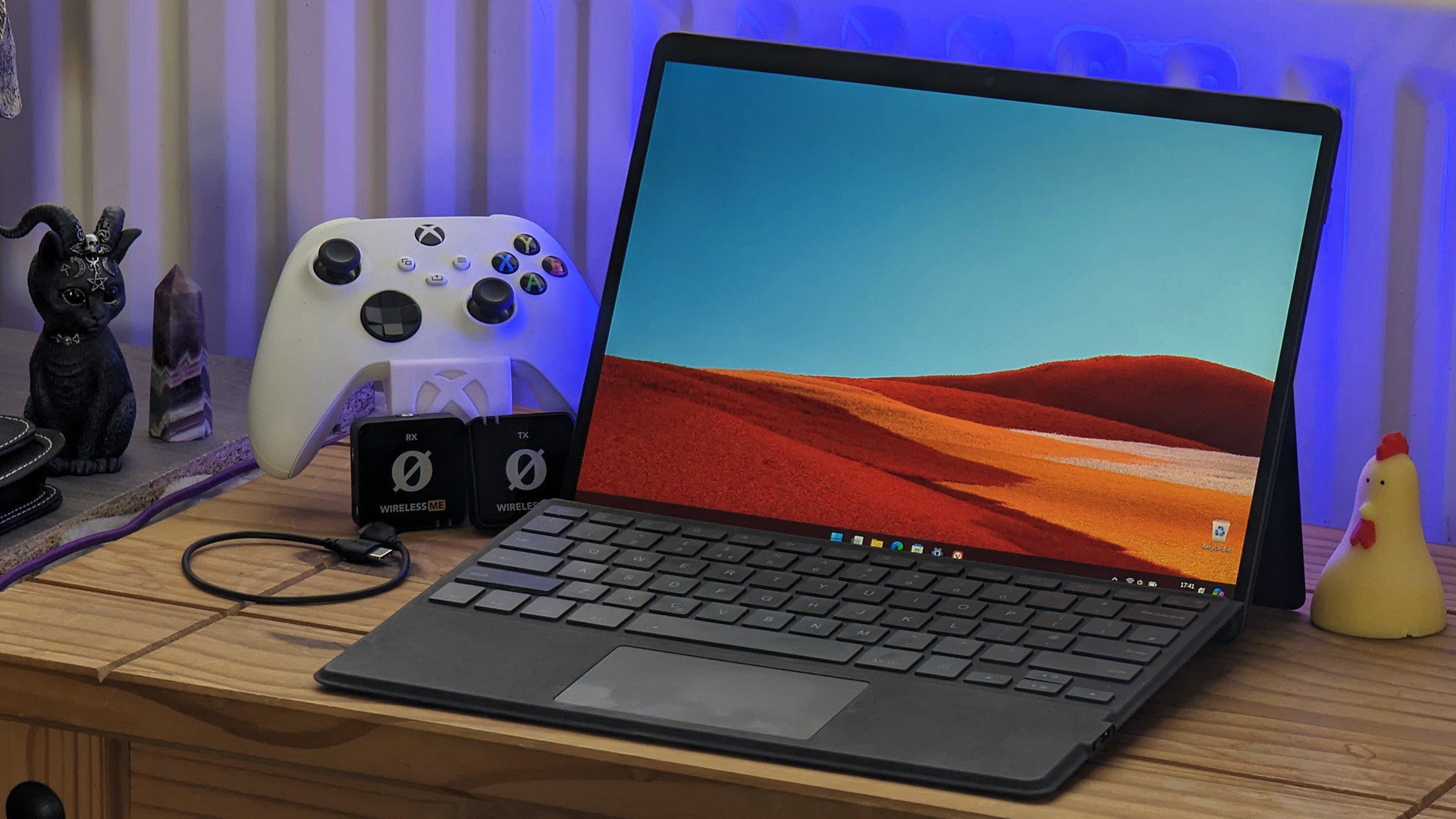Microsoft VP describes the new iPad Pro as having a "3 legged OS" and it sums up my own past experience better than I ever could
Apple crams immense power into its tablets, but cripples it with the software. At least on a Surface Pro, you get a proper operating system.

Any time Apple launches a new iPad people talk. Tech enthusiasts, such as ourselves, but also regular folks. Apple just has that brand appeal, people take notice. Not just out-and-out Apple fans, either.
The new iPad Pro is also of particular interest to those charting the upcoming Windows on ARM onslaught, being the first Apple hardware to pack the new M4. Regardless of differences, Apple is the ARM benchmark, so it's the one everyone will compare to.
But I'm not interested in the hardware so much today. A social media post from Microsoft's VP of Developer Community, Scott Hanselman, resonated with my own experiences of iPad life. And, ultimately, why I don't bother anymore.
This new iPad Pro is fantastic. Very happy with it. Except it’s also not a MacBook Air. All this power and this 3 legged OS. Stage Manager is a weak simulacrum of a window manager. Please unify these operating systems.May 17, 2024
The iPad is arguably the best tablet you can buy, still, and I've used them through various generations dating back to the very first. There's a lot to like, a lot of convenience that can be added into your life, but ultimately, it never scratched the right itch.
The penny dropped when I invested in a cellular 12.9-inch iPad Pro back in 2019. An amazing piece of hardware, a stunning display, and for casual uses like a little gaming, media consumption, reading, absolutely sublime. But I also tried to use it instead of a laptop. After all, it was pretty huge, why would I want to carry an iPad and a laptop.
A lot of the time it wasn't too bad. I couldn't ever say the iPad Pro wasn't capable of replacing a laptop, because in many cases, it easily was. But it's that "3 legged OS" phrase that really sticks. It sums up iPadOS perfectly for the more demanding users among us. Even our pals at iMore in their review of the new iPad Pro said that it has "more power than iPadOS knows what to do with."

I can already feel the wrath of the Apple fans bearing down upon me. I'm not denying that some could certainly make do with an iPad instead of a laptop.
Get the Windows Central Newsletter
All the latest news, reviews, and guides for Windows and Xbox diehards.
The problem with iPadOS, to me, is that it feels intentionally limited. Why doesn't Apple have a touchscreen Mac? Why can't the iPad Pro with all that horsepower run macOS, or at the very least, have a more macOS-like experience tailored to it? Apple wants you to buy both a laptop and an iPad, right? After all, it is, still, very much a hardware-first company. Unlike Microsoft.
My time trying to replace a laptop with an iPad was just frustrating. Constantly thinking "I want to do this but I can't," or hunting the web for workarounds or clever creations in Apple's Shortcuts app to brute force the thing into doing something it couldn't just do natively. By all accounts, folks like myself, wouldn't find the latest and greatest any less irritating to use.
Surface really has missed an opportunity up to now

It makes it all the more frustrating that Microsoft has never managed to make the Surface line more popular than it is. Naturally, we like them in these parts, but on the grand, global scale, it's a nothingburger next to Apple's Goliath. Windows 11 doesn't exactly help matters, being pretty awful to use on a tablet compared to iPadOS.
But that's the thing. The Surface Pro is a full PC inside a tablet. The iPad Pro is an iPad. Brand appeal still probably trumps all, but at least on a Surface you can do almost anything you could want to do on a laptop, while having the convenience of a tablet.
On a Surface Pro you can use your regular photo editor, regular browser, regular non-Microsoft Store applications, and so on. You can also read books, watch Netflix, listen to music, check out Facebook, and all the other casual things one might do with a tablet.
For the more demanding users, the 'Pro' category, the Surface Pro is almost certainly a better device. Even if it's less powerful (for now). Why on earth isn't it more popular? We can probably lay that blame squarely at Microsoft's door.
Who knows, though, perhaps when Qualcomm's Snapdragon X Elite chips get here and we (hopefully) get a seriously performant ARM Surface Pro, heads could be turned. I guess we'll soon find out with the big Microsoft event going down on May 20.

Richard Devine is a Managing Editor at Windows Central with over a decade of experience. A former Project Manager and long-term tech addict, he joined Mobile Nations in 2011 and has been found on Android Central and iMore as well as Windows Central. Currently, you'll find him steering the site's coverage of all manner of PC hardware and reviews. Find him on Mastodon at mstdn.social/@richdevine
-
ShinyProton Pretty interesting comment coming from the MS Dev Community VP.Reply
I wonder what he would call an OS without an ecosystem... two legged?
Microsoft made bad decisions over bad decisions in the last decade, losing its consumers and developers bases. Their app Store is a pathetic joke.
Without the cloud and corporate immobilism, they would have a pretty hard time as consumers don't care about them anymore. -
Laura Knotek Reply
What's the purpose of an app store on a platform that lacks mobile devices? Every program for Windows is available directly from the company that makes the program.ShinyProton said:Pretty interesting comment coming from the MS Dev Community VP.
I wonder what he would call an OS without an ecosystem... two legged?
Microsoft made bad decisions over bad decisions in the last decade, losing its consumers and developers bases. Their app Store is a pathetic joke.
Without the cloud and corporate immobilism, they would have a pretty hard time as consumers don't care about them anymore. -
Arun Topez Reply
The point of an App Store is a single trusted place to install/update apps and OS components, and more so discoverability to help market their apps/games. Without a Store the companies would have to invest more in marketing themselves, and increase risk for fake dupes and piracy. Unfortunately, without a full ecosystem like Apple and Google have, they've had to cut corners to allow companies to use their own installers and co-exist with installing direct from their website. MacOS and Android have desktop app stores as well, and they work well.Laura Knotek said:What's the purpose of an app store on a platform that lacks mobile devices? Every program for Windows is available directly from the company that makes the program. -
Arun Topez That's rich coming from Windows. Telling Apple to unify their operating systems when they themselves failed to unify their various Windows operating systems and gave up when they were getting close with Core OS, and gave up their Mobile OS as well, and instead just prettied up their mixed-legacy OS which causes weird loading of certain mixed-apps like File Explorer and Notepad, messy developer platform, and inconsistent designs in the OS itself and throughout their native apps. They should focus on cleaning up their own OS and building their own ecosystem if they want any chance to continue with consumers.Reply -
Laura Knotek Reply
The more Microsoft nags users to try their programs or uses the OS as an ad platform, the more I want to use other companies' programs. All these new "features" are nothing but bloatware to me.Arun Topez said:The point of an App Store is a single trusted place to install/update apps and OS components, and more so discoverability to help market their apps/games. Without a Store the companies would have to invest more in marketing themselves, and increase risk for fake dupes and piracy. Unfortunately, without a full ecosystem like Apple and Google have, they've had to cut corners to allow companies to use their own installers and co-exist with installing direct from their website. MacOS and Android have desktop app stores as well, and they work well. -
taynjack As someone who uses an HP surface clone, I think that comment goes both ways. I've been on jobsites where it takes me forever to get my plans up, the third-party app has driver issues, or my pen doesn't work right. The touch/pen interface is, as all things Microsoft, so close to being frictionless, but has some really obvious and frustrating misses. Just yesterday at a jobsite meeting, the contractor whipped out his ipad, found the information quickly, drew up some comments and had it e-mailed to me faster than I could boot up, open the program, then find the information that isn't easy to get with a pen. (The whole time I'm resisting the urge to whip out a mouse on a jobsite) I think there are cases where each system shines and each flubs. After the meeting yesterday, I'm seriously considering an ipad, at least to go to jobsites.Reply -
Jeffery L I wish there were statistics collected on when you use a Windows 2-in-1 device without a keyboard. I think it would show better that Windows tablet is being used more than people realize.Reply
